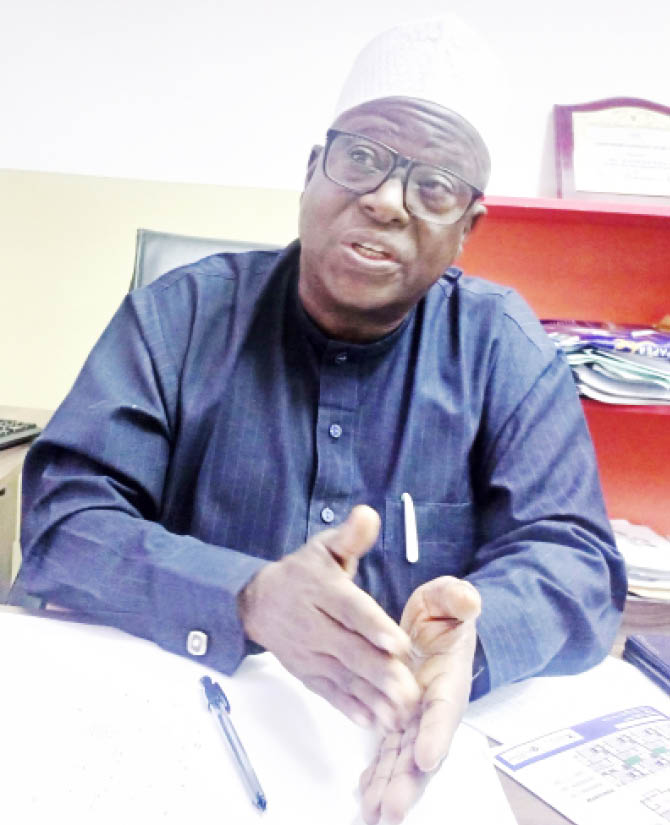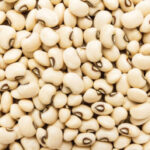In this interview, the president of all Farmers Association of Nigeria (AFAN), Arch. Kabiru Ibrahim, speaks on the many challenges confronting farmers in Nigeria and why 2023 may be difficult. Excerpts:
With the farming season midway, what challenges are farmers facing?
The famers are facing many problems, chief of which is insecurity. Insecurity is preventing our farmers in many regions of this country from going to their farms and thereby producing optimally to feed the 200 million mouths that Nigeria has today. Since the 2019 pandemic, the world has been suffering from food insufficiency and this hike in prices is the effect of COVID. The issue of the Russia-Ukraine war is only aggravating the situation. Nigeria may have done a lot of things prior to even COVID-19 and Russia-Ukraine war to see if our food system will be invigorated, unfortunately as you all know the implementation has been unsatisfactory. This is the truth.
- 2023: We’re praying for Tinubu not to be treated like Abiola – Ladoja
- 2023: Tinubu/Pam ticket will address religious, ethnic questions – Northern group
For Nigeria to really get out of this problem, we must do something about insecurity. Then, the subsidy that we give in agriculture should reach the real farmers. The smallholder farmers should be subsidized; subsidy should not only be for middlemen or businessmen who deal in fertilizers and others, it should go down to the farmers. That is the only way they would be able to farm optimally. The problems we have today, especially the hike in prices of produce, will continue if our naira keeps falling. The purchasing power of the naira is dwindling. The CBN should be able to do something to shoot it up because the slide is unacceptable.
In Nigeria today, every sector is going down. People can no longer afford anything – food, clothes, shelter or whatever. But food is very important because it’s when you are hungry that the prevalence of crime continues.
I will tell you what we (farmers) do if we catch someone taking sugarcane or corn from our farm just to eat. I’m not supposed to raise any alarm, especially if you are not taking it away. I will allow you to eat and go; that is our take on life. But what is happening today is that people go to the farms once these things blossom and take them all away overnight.
The government may be doing a lot, but the drivers are not really working, they’re not focused enough. Mr. President should have done a lot of due diligence to put the right people to run, at least, the ministry of agriculture. The president also mentioned in his first October speech that NAFRA (National Food Reserve Agency) should be resuscitated. This is July and it has not been resuscitated. Do you know the effect of that? We have no reserve. In the case of famine or disaster, we will have no stock to fall back on because the stock is very small.
In 2008, the government of Umaru Musa Yar’adua released a lot of money and were expanding our storage capacity. We expanded it to 1.3 million metrics tons, which is in compliance with the CAADEP (Comprehensive African Agricultural Development Programme) conditions. There are four pillars – storage is one of them. So, the government in addressing the issues then, started with this.
What is your take on our mechanization policy? Despite several attempts to get 10,000 tractors from Brazil, we are still nowhere?
I know what you’re referring to; you know we had this arrangement to get $1.1bn loan from Brazil in kind, part of it will be tractors. Anybody who is saying 10,000, 20,000 is not sensible; you know the unit cost of a tractor. We’re not only bringing tractors; we’re bringing all kinds of farm machines and they are coming as knockdown – you assemble them here. They would be assembled in our companies here, thereby creating jobs. I am aware that the final agreement has not even been signed so why are these people saying 10,000, 20,000? The bill was there in the National Assembly for some time and we were there to talk about it, during the tenure of Nanono. He practically botched it; nobody is pushing sufficiently for it to come to fruition. I’m not confident that it will come before the end of this administration.
However, you can do this without even borrowing. There are many people who have tractors out of India, China, and Brazil. They come here and want to sell to us, so we’re in a relationship with so many of them. Our farmers, with their widow’s mite, were able to buy 1, 2, 3 tractors. Some state government stood in for some farmers to get it.
In Katsina State for instance, Mahindra—the people who have tractors from India, are there. I also know they are present in Kaduna. They came here and we even gave them a chance to display to the farmers’ leaders what they have and we have been buying.
So, what should we do right as a country to scale up mechanization and provide access to tractors for our farmers?
We should encourage the private sector to get into it, and government should create the enabling environment for the private sector to thrive. Government should have a policy that they should come here and build assembly plants, just like we do with seeds now. With time, Nigeria will be able to manufacture its own tractors.
You know for a very long time, we have been doing the agric show but before we started the agric show, we have been going for England Royal agric show where you will see rudimentary science in its formative years. Then they kept developing and evolving—making engines, making machines that would do something better.
Let’s talk about inputs like fertilizers and seeds this year. What is your take?
The price of fertilizer today is too exhorbitant, most farmers can’t afford it. The NSIA, in one meeting two years ago, said the subsidy they give is too much and that their account was showing red at all times. So, in 2021, that was removed. The blenders were buying directly from the NSIA with banks guarantee and then they would sell to us at their reasonable prices which was about N11,000 last year for 20:10:10.
Even on face value, the prices of Indorama and the Dangote urea were even lower than their own. But when you come to the market, because of middlemen and other bottlenecks, the urea comes to the farmer at N15,000 or so. This one comes to the farmers at about N11,000 or N11,600. The farmers couldn’t afford it. Last year, some of the blenders came here and were complaining that people were not buying.
So, the thing is that the blenders’ production cost is almost N20,000 per bag because the value of our naira is low, what they’re buying is the MOP from Russian at the market value of $1,500 per ton but they were lucky they got it at $940. By the time they come here and blend with other components, the price per bag would be high.
We’re in a dilemma because with the value of the naira, the price of fertilizer is beyond the reach of the small holders farmers and then every other thing that is imported also goes through the same process because it is in dollars. Everything you see in Nigeria is dependent upon the purchasing power of the naira. I am fearful that 2023 may even be more difficult than 2022; this is the reality, go and cross check.
How does the crisis currently rocking your association affect your ability to make impact or speak with one voice?
The farmers should understand that we’re not a department in the federal ministry of agriculture. When we get our acts together and speak with one voice, we are feared and respected. We can’t shake government when we are fractured but when we’re one, we think as one and we’re there to add value to the farmers. The government will hold us with a lot of reverence but now that we’re going cap in hand for this or that, the government would just do what it wants.
So, as far as I’m concerned, with my experience from being president of poultry association and having been in this for 21 years and with my level of education and exposure, farmers will never get what they want if they are fractured.

 Join Daily Trust WhatsApp Community For Quick Access To News and Happenings Around You.
Join Daily Trust WhatsApp Community For Quick Access To News and Happenings Around You.


